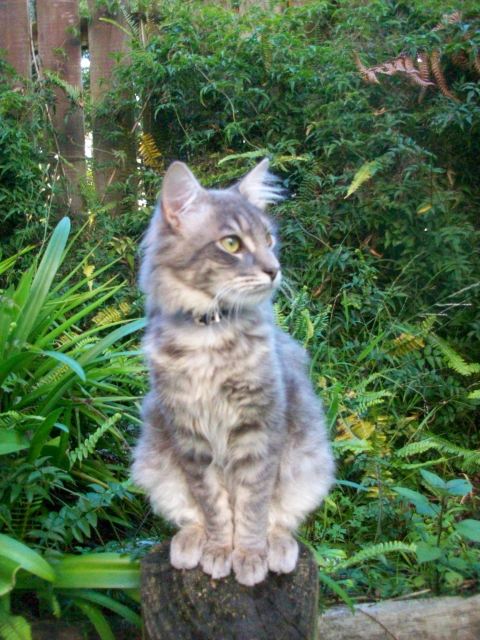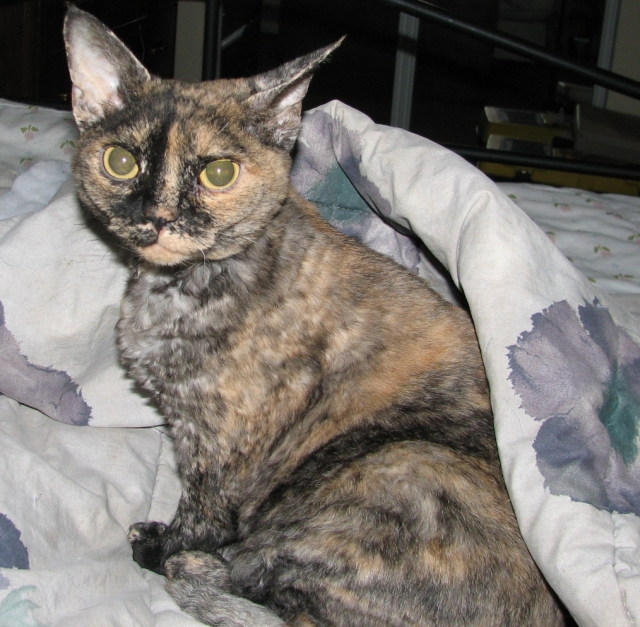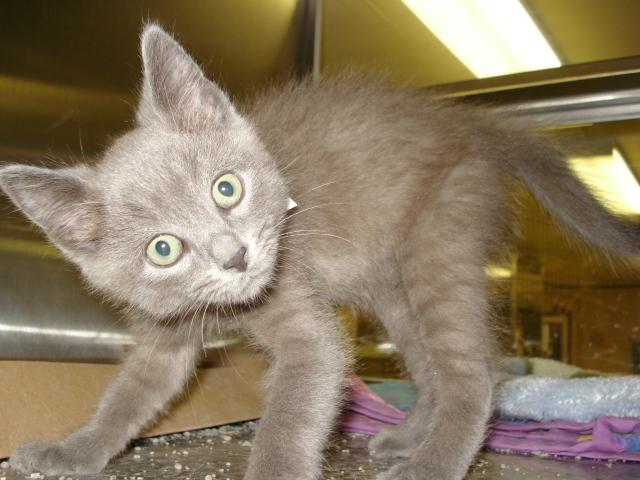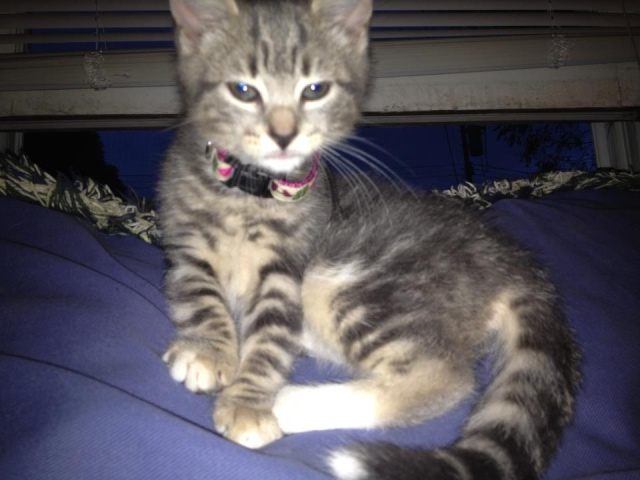QuestionI have a bengal kitten that is 4 months old-we have had him since he was 10 weeks old.He sleeps with my son who is 6 and adores him.However;he also sleeps with me at times,he starts to kneed with his paws then holds my skin on my arms or hands in his mouth,firmly not moving.Just holding me in his mouth and kneeding his claws but then looks like he may get mean because his ears go back.I have to put a finger in his mouth to make him let go,I tell him no firmly and try to get him to lay with me to "cuddle" but then he leaves me. Not sure what he is doing,help.
AnswerHi Sharon,
It does sound to me like your kitten is still suckling, even though his ears are going back. Most of the time, cats will hold their ears back when they suckle (or eat). I don't think your kitten has any mean intentions here, but regardless of his innocent intentions, holding the skin can be painful, and it will get worse as he gets older and stronger. So discouraging this habit now is a good idea. Rather than putting a finger in his mouth to stop him, I would recommend gently squeezing the sides of his jaw until he releases.
Occasionally, a cat might grab a hold with his mouth like this to try to show dominance. However, the cat will simultaneously mount the animal he is trying to dominate and won't be kneading his paws. He's also a little young to be exhibiting this behavior yet, so I wouldn't imagine this is the case. However, if it is, treat it the same way as suckling behavior and simply disallow it. Have him neutered right away, as well, as testosterone can contribute to this behavior, and at 4 months, he may be starting to feel the effects of this.
Kittens can be difficult to get to cuddle, as they tend to be on the move when they're not sleeping or eating. But hopefully as he gets a little older and his activity level settles down a little, he'll be happy to give you some cuddle time. With any luck, the suckling behavior will naturally fade away over the next year, but be sure to be consistent in discouraging it just in case. Some cats struggle with this behavior throughout adulthood.

 Rain
Question
my cat
Hi, i was wondering if you could help m
Rain
Question
my cat
Hi, i was wondering if you could help m
 My cat is jealous of my other cat
QuestionQUESTION: Hi Ali. I hope you can provide
My cat is jealous of my other cat
QuestionQUESTION: Hi Ali. I hope you can provide
 Rehabilitating aggressive rescue cat!
QuestionA friend of me and my husbands was told a week
Rehabilitating aggressive rescue cat!
QuestionA friend of me and my husbands was told a week
 Trimming (crazy) Kittens Claws
Question
tigerlily
I need to trim my kittens nai
Trimming (crazy) Kittens Claws
Question
tigerlily
I need to trim my kittens nai
 my pregnant cat has given birth to one dead kitten
Question
l
my cat has been nesting for last 2 days, whe
my pregnant cat has given birth to one dead kitten
Question
l
my cat has been nesting for last 2 days, whe